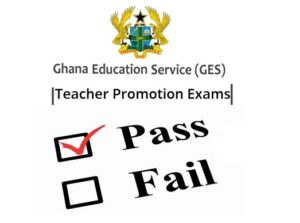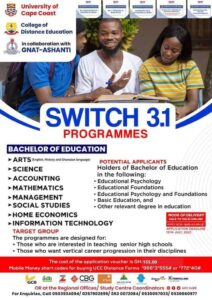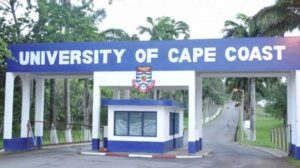Trends in West African Senior School Certificate Examination (WASSCE) 2015-2023
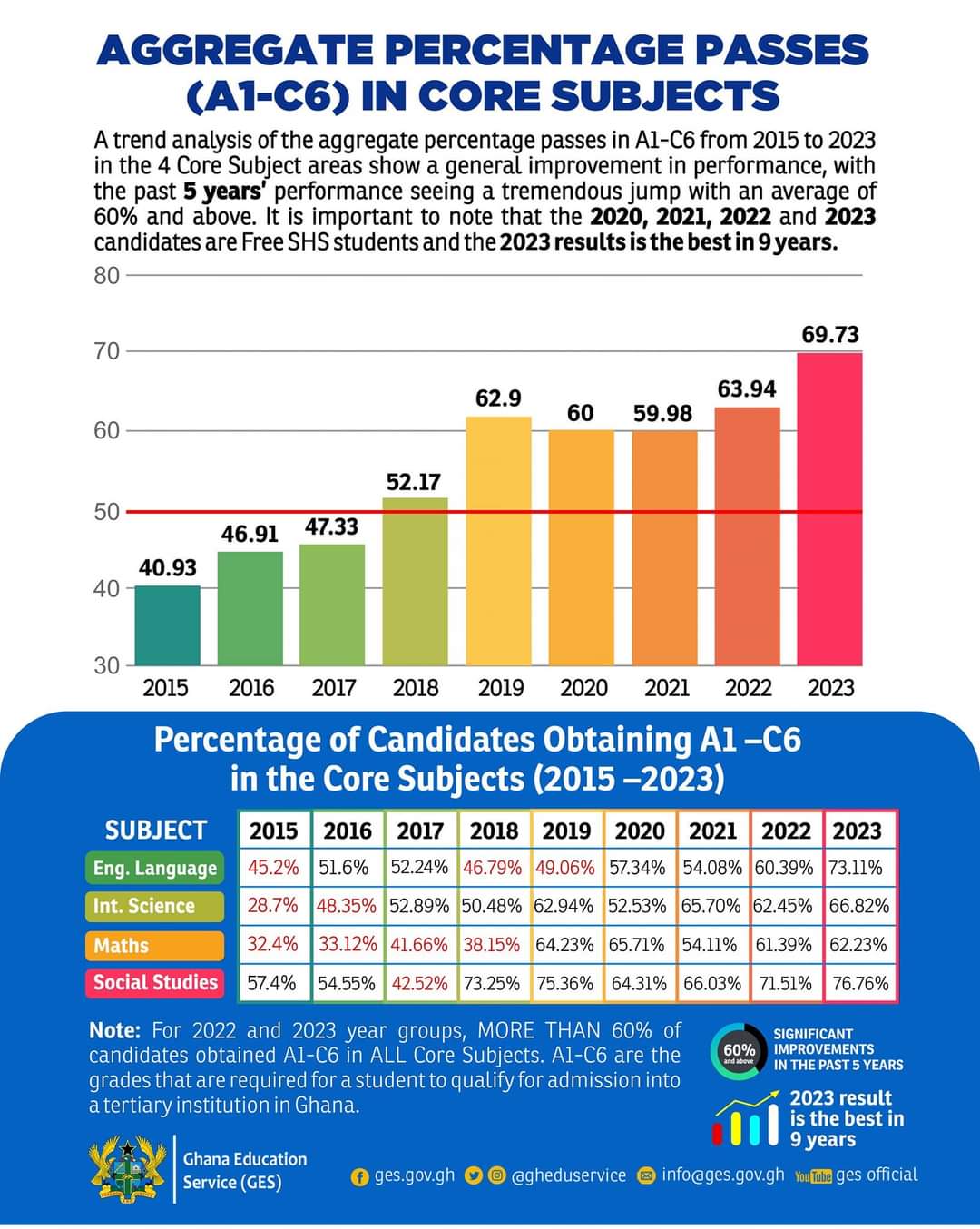
WASSCE Performance Trend Analysis
Trends in West African Senior School Certificate Examination (WASSCE)
Introduction
Trends in West African Senior School Certificate Examination (WASSCE) results for core subjects in Ghana can vary based on multiple factors like educational policies, teaching methodologies, socio-economic conditions, and student engagement.
Typically, to analyze WASSCE trends, one would need access to historical data for each subject over the past five years. This data would include metrics such as the percentage of students who passed, average scores, trends in specific subjects like Mathematics, English, Science, etc., and any notable fluctuations or improvements over the years.
Overview
In September 2017, Ghana began to implement an ‘extended basic education’ system which makes senior high school (SHS) education free and inclusive. For policy formulators, a number of contexts underlined the design and implementation of this free, inclusive education regime. These include a perennial weak transition problem (especially for pupils from basic education to secondary), imbalances in education access, the need to fight poverty and crime and stimulate improved civic life, health and living conditions as well as economic growth for the people of Ghana. In respect of weak transition for instance, from the 2010/11 to 2016/17 academic years, out of a total of 4,000,000 pupils who started primary school, only 500,000 students were enrolled in senior high education (Education Management Information System (EMIS) data, 2010-2017), indicating that a significant majority of students (i.e., 3,500,000 students) could not gain access to senior high school.
Graphical Representation
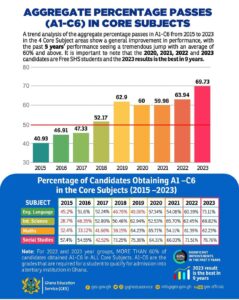
Interpretation
With regard to the percentage of candidates obtaining the tertiary education qualifying grades (A1-C6) in the core subjects, this year’s WASSCE results is one of the best in the last five years. Comparing the percentage of candidates obtaining the (A1-C6) in the WASSCE core subjects in the past five years, it can be observed that the greatest improvement was in English Language. The percentage of candidates making the tertiary education qualifying grades (TEQG) in mathematics (the most dreaded subject in the curriculum) increased from 60.39% in 2022 to approximately 73.11% in 2023. Also, mathematics recorded the marginal percentage increase. Furthermore, the proportion of candidates making the tertiary education qualifying grades (TEQG) in all four core subjects increased from 63.64% to 69.73% this year, a very signicant increase.
It is very interesting to note that these major improvements in WASSCE are happening at the time when the entry requirements for entry into SHS have been reduced drastically from the BECE qualifying aggregate of 30 to as low 50.
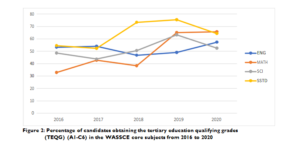
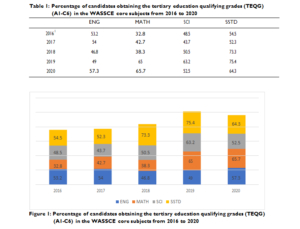
Conclusion
Proponents argue that the free shs policy has increased enrollment rates and allowed more students to access education, thereby potentially increasing the number of candidates sitting for the WASSCE. A higher number of candidates might lead to more students passing the examination, thereby influencing the overall statistics positively.
However, the direct correlation between the Free SHS policy and improved WASSCE performance might not be straightforward. While increased access to education is crucial, the policy’s influence on the quality of education, teaching standards, resources, and student preparedness for the examination are equally significant factors.
Moreover, the policy is relatively new, and assessing its long-term impact on WASSCE performance would require analyzing trends over several years to determine if any improvements are sustained and not merely short-term effects of increased enrollment.
It’s essential to conduct comprehensive studies and analyses using data from before and after the policy’s implementation to accurately assess its impact on WASSCE performance in Ghana.
